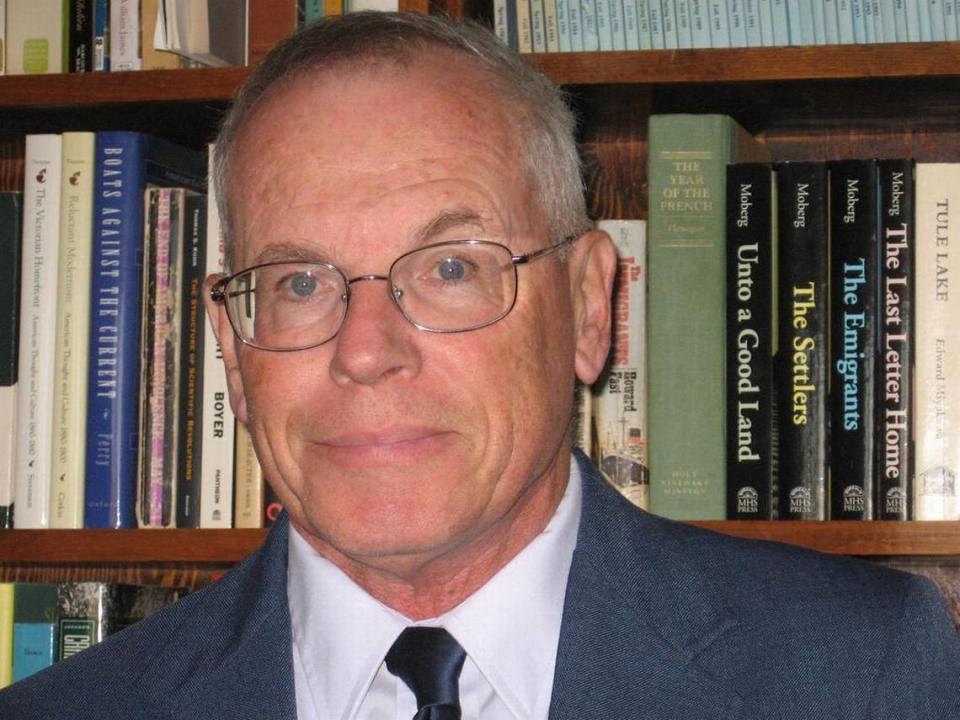Absolute immunity is last thing Founding Fathers wanted for our presidents | Opinion
- Oops!Something went wrong.Please try again later.
- Oops!Something went wrong.Please try again later.
No better illustration can be had of the terrible state in which the country finds itself than in the hearing that the United States Supreme Court held last week on Donald Trump’s absurd claim of absolute presidential immunity. That at least four justices had agreed to hear such a frivolous case is yet another confirmation that, for at least most of the Republican-appointed justices on the court, the law IS a respecter of persons. Justices Thomas, Alito, Gorsuch and Kavanaugh all seemed perfectly willing to entertain as appropriate subjects for presidential immunity such dystopian acts as selling state secrets or ordering the assassination of one’s political opponent. They might as well have seated themselves as part of Trump’s defense team.
As in the Colorado case, the court’s majority ignored the amici curiae brief submitted by a distinguished group of American historians which exhaustively documented the Founders’ intent to limit the power of the executive. Absolute immunity was the last thing the Framers wanted to bestow upon the chief executive of their republic. In the republic they had created, the people are sovereign; they exercise their power ultimately through elections. Trump’s alleged crime was his refusal to honor the people’s will by trying to overturn the 2020 election, first by lawsuits, then by a fake elector scheme, and finally, by insurrection. As the amici curiae scholars conclude, “Immunity for the crimes here alleged would be most abhorrent to the Framers because [it] would . . . aid a President in overriding the people’s power over him.” He would have become the very sort of monarch whose tyranny they had fought a war to escape.
As one could have predicted, the Originalists’ bloc within the court had no interest in heeding the determination of those best qualified to opine on the topic of the founders’ intentions about presidential immunity. When Originalists encounter historical truth which does not conform to their expectations, they simply shift to another approach that will do so. And so, they introduced the false dichotomy of official versus unofficial acts not only to distract from the grave crimes that the former president had committed but to frame the discussion in such a way as to legitimate them. If a president lacks immunity, they ask, what would happen if a succeeding president prosecuted him for some action he had taken while in office? Justice Sotomayor pierced this balloon by pointing out that in the nearly 250-year history of the republic, such a situation had never occurred – until Trump.
The only question the justices should have addressed is this: is a president bound by the Constitution and the laws enacted under it, or does he have some unique immunity from them by virtue of being president? To immunize his official acts is to say that a president can do whatever he pleases in the capacity of being president. This is the legal nihilism which paves the way to autocracy. Such is the consequence of letting ideology determine one’s jurisprudence. At the very best, democracy is hanging by a thread at the court.
We cannot let Trump, with the eager assistance of the nation’s top court, prevent the truth from reaching the American people. If there is any hope of holding the disgraced ex-president accountable for his blatantly treasonous attempt to remain in power, the media still committed to preserving democracy have a special obligation to bring before the American people the mountain of evidence state and federal officials have gathered in New York and Washington and Georgia and Florida. So much of that evidence has become available through the report of the January 6 committee and the indictments that prosecutors have brought. It needs exposure. Enlightened by this knowledge, the American people can appropriately exercise their sovereignty come November. Our democracy depends upon it.

Robert Emmett Curran is a Professor of History Emeritus at Georgetown University.

